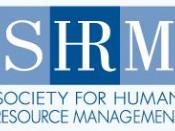Companies provide strategies to ensure the progress and development of the business. There are many ways to do such intention. One is to start at the work force, to the persons that are involved in the operation of the business. According to Adler, N. J. & Ghadar, F. (1990), the employees of the company are the foundation of the business. They have a vital part in the operation of the business if the employee fails the business fails. So it is recommended to shift functions to provide opportunity for all staff to improve their job performance, raise productivity, quality and customer service in pursuit of continuous improvement. This will promote equality of access to training and development for all staff. While other, retain function to improve where the persons involve is good at. His expertise match to certain function of the company and will generate good operation as a result of his/her contribution.
Developing new function is essential in order to develop staff potential to meet their personal aspirations for career development and job satisfaction where these can reasonably be accommodated in terms of cost and time.
What are the implications for the Human Resources Management personnel in Singapore, Korea and Taiwan based companies.
Ten years ago, Human Resource Management was nearly an unknown term in Asia. Training, selection, and performance appraisal were known in very short shrift, and staff specialists, when existed, were known as Personnel Managers, or had a dual role of Administration Manager with a Personnel tag thrown in for excellent measure. Back in those days, Asian companies were not conscious of how effective management of the human resource had a key bearing on the bottom line. The educational sector gave slight support. Professional associations were fledgling to say the least. A "personnel" position was frequently something...


